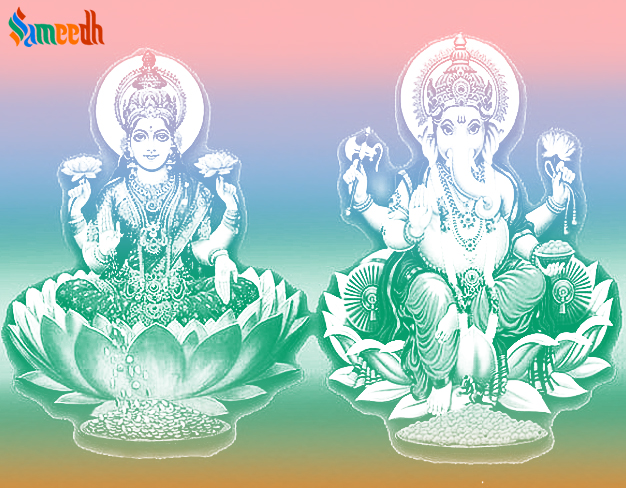In Hinduism, the worship of deities can vary based on regional customs, traditions, and specific observances. The choice of which deities to worship during festivals like Diwali can be influenced by various factors, including mythology, symbolism, and local practices.

In Hinduism, the worship of deities can vary based on regional customs, traditions, and specific observances. The choice of which deities to worship during festivals like Diwali can be influenced by various factors, including mythology, symbolism, and local practices. While there isn’t a single answer that applies universally, We can provide you with some insights into why Ganesha and Lakshmi are often worshiped together on Diwali, rather than Vishnu and Lakshmi.
- Ganesha’s Role in Removing Obstacles: Ganesha, the elephant-headed deity, is widely revered as the remover of obstacles and the lord of beginnings. His blessings are sought before embarking on new ventures, and his presence is believed to ensure success and smooth transitions. Worshiping Ganesha at the beginning of Diwali signifies the removal of obstacles and the initiation of a prosperous and auspicious period.
- Lakshmi’s Blessings of Wealth and Prosperity: Goddess Lakshmi is associated with wealth, prosperity, and abundance. Diwali, being the Festival of Lights, is also the celebration of Lakshmi Puja, during which devotees seek her blessings for financial well-being and material prosperity.
- Symbolism of Light and Illumination: Diwali is celebrated with the lighting of lamps and candles, symbolizing the victory of light over darkness and knowledge over ignorance. Ganesha is often invoked to remove obstacles on the path of spiritual and material progress, while Lakshmi is worshiped for the light of wealth and prosperity to enter one’s life.
- Vishnu’s Role in Preservation: Lord Vishnu is one of the principal deities in Hinduism, responsible for the preservation of the universe. While Vishnu and Lakshmi are often worshiped together in various contexts, Diwali’s focus on new beginnings and prosperity may make the combination of Ganesha and Lakshmi more relevant to the occasion.
- Cultural and Regional Practices: The worship of specific deities on Diwali can vary based on regional and family traditions. In some households, people might indeed worship Vishnu and Lakshmi together during Diwali.
- Mythological Context: There are various mythological stories and legends associated with Diwali, and the choice of deities to worship might be influenced by the particular stories that resonate with a community or family.
It’s important to note that Hinduism is a diverse and complex religion with a wide range of practices and beliefs. The choice of deities to worship during Diwali can vary from one family or community to another, and there is no fixed rule. Ultimately, the worship is a reflection of the devotee’s personal connection, beliefs, and intentions.
